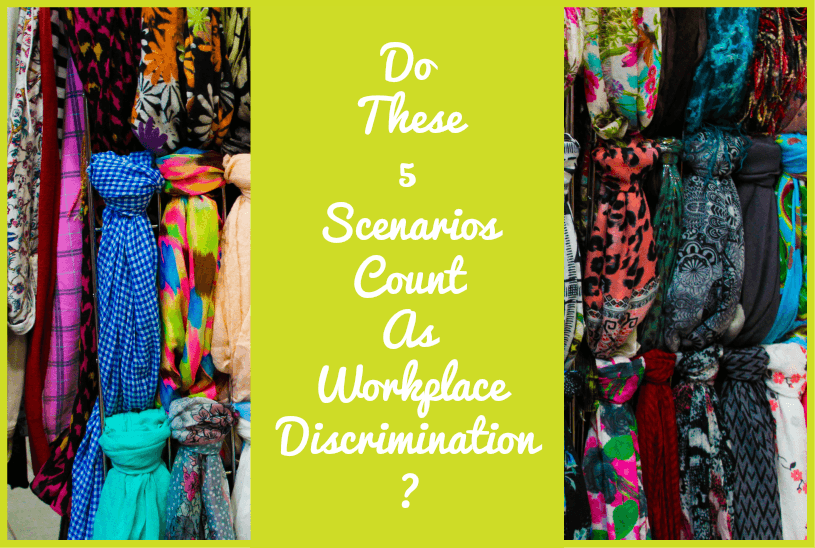
Do These 5 Scenarios Count As Workplace Discrimination?
Have you ever started a job with high hopes and expectations and then found that you are not treated fairly?
Perhaps your superior discriminates against you because of your gender, race, or age. There are many forms of workplace discrimination. People who suffer workplace discrimination suffer emotional distress, career damage, and financial wellbeing.
Knowing what to do is not always easy because you will be going against your employer such as an educational institution.
Workplace Discrimination Laws
There are laws in place to protect people from workplace discrimination. Title IX work discrimination law address workplace discrimination in educational institutions. It sets up due process rights for victims of discrimination. These laws are complex but essentially, they deal with treating a person unfavorably because of their sex.
The situations this covers include hiring, pay, job assignments, firing, promotions, training, fringe benefits and other conditions of employment.
Then, there is the Civil rights Act of 1964 in the UK. This law prevents discrimination because of race, religion, color, sex, and national origin. The timelines and procedural requirements for filing a claim and proving the claim are difficult.
Because understanding workplace discrimination laws is complex and proving discrimination can be difficult, most people choose to hire an attorney to explain the law and help prove a case. Meeting with a prospective attorney to discuss the case may be helpful in determining if a claim exists in the eyes of the law.
5 Scenarios Counting as Workplace Discrimination
1. A female employee is several months pregnant and applies for a new position that has become vacant. She is told the company wants someone more dedicated to the job.
2. Another lady is employed in a retail position. She has a disability that limits the weight she can lift. She finds out that her fellow employees are paid more for the same job even though she works just as hard as they do. When she confronts the manager, she is told she doesn’t carry as much weight in the job.
3. A man is working for an employer who practices a different religion than him. The employer treats other employees of the same religion better. Promotions and pay raises are given to employees who practice the religion of the employer before the man with a different religion even though his performance is equal.
4. Age matters in this company. Alice is 50 years old and has been told she cannot receive certain promotions because of her age. The company wants a younger face for the public.
5. Because Alice is BAME, she is subject to insults, racial jokes and is not promoted like her white counterparts even though her job performance is equal. She suspects she is paid less than her coworkers in the same position.
When a person feels they are being treated poorly and discriminated against because of who they are rather than their work performance, they can seek legal help.
Some effects of discrimination may be denial of employee benefits, denial of disability or maternity leave, termination, color comments, inappropriate jokes, favoritism of others, loss of shifts, and more.If you feel you have a case of discrimination in the workplace, do a little research into the workplace discrimination laws to find out what your rights are and then seek legal help.
© New To HR


